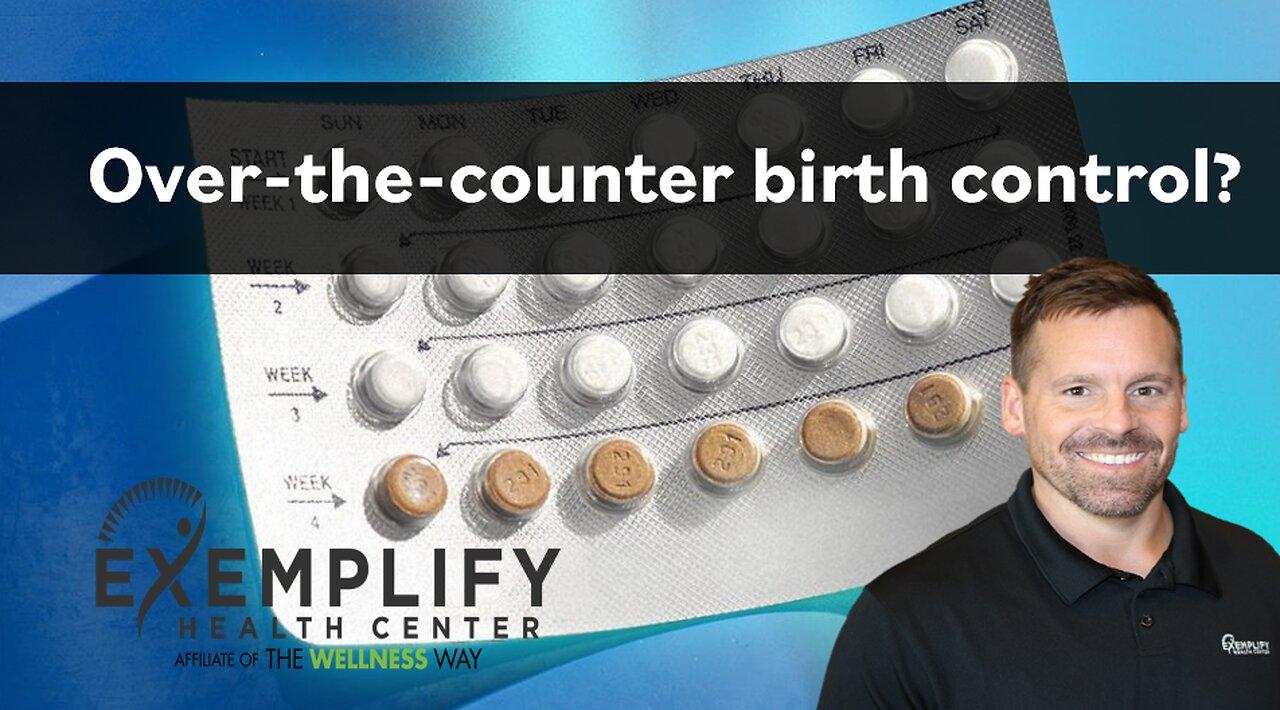The Impact Of Over-the-Counter Birth Control In A Post-Roe World

Table of Contents
Increased Access and Convenience
The primary advantage of over-the-counter birth control is undoubtedly increased access and convenience. Current systems present significant barriers for many individuals seeking contraception.
Geographic Barriers
Many Americans, particularly those in rural areas or underserved communities, face substantial challenges accessing reproductive healthcare services. Limited transportation options, long distances to clinics, and a scarcity of healthcare providers create significant hurdles. Over-the-counter birth control could dramatically alleviate these issues.
- Reduced travel costs and time: Eliminating the need for appointments and travel to clinics saves both time and money, making contraception significantly more accessible.
- Increased access for individuals in underserved communities: Over-the-counter availability ensures that birth control is within reach for those who previously lacked access due to geographical limitations.
- Improved convenience for busy individuals: The ease of acquiring birth control without scheduling appointments makes it more convenient for individuals with busy lifestyles or demanding work schedules.
Financial Barriers
The cost of birth control is another significant barrier to access. Even with insurance, the expense of regular doctor visits and prescription refills can be substantial. Over-the-counter birth control has the potential to significantly reduce these financial burdens.
- Reduced healthcare costs associated with prescription visits: Eliminating the need for doctor visits for birth control prescriptions saves money on co-pays and transportation.
- Potential for lower overall birth control costs due to increased competition: A more competitive market for over-the-counter birth control could drive down prices, making it more affordable for everyone.
- Improved affordability for low-income individuals: Lower costs directly translate to improved access for individuals and families with limited financial resources.
Potential Public Health Implications
The widespread availability of over-the-counter birth control could have profound positive implications for public health.
Reduced Unintended Pregnancies
Increased access to contraception is strongly correlated with reduced rates of unintended pregnancies. Studies have consistently shown that improved access leads to fewer unintended pregnancies, resulting in better overall health outcomes.
- Lower abortion rates: Preventing unintended pregnancies directly reduces the need for abortions.
- Improved maternal and child health outcomes: Planned pregnancies lead to healthier mothers and babies, with better access to prenatal care and reduced risks associated with unintended pregnancies.
- Reduced strain on public health resources: Fewer unintended pregnancies lessen the burden on public health systems, freeing up resources for other essential services.
Increased Responsible Contraceptive Use
Easy access to over-the-counter birth control may also lead to more consistent and responsible contraceptive use.
- Reduced reliance on less effective methods: Individuals may be more likely to use reliable methods of birth control when access is improved.
- Improved understanding of contraceptive options: Increased availability could encourage individuals to learn more about various options and choose the best method for their needs.
- Increased engagement in family planning: Easier access to contraception empowers individuals to make informed decisions about family planning, leading to healthier and more responsible choices.
Potential Concerns and Challenges
While the benefits of over-the-counter birth control are significant, potential concerns and challenges must be addressed.
Misinformation and Self-Medication
The risk of misinformation and improper use of over-the-counter birth control is a legitimate concern. Without professional guidance, individuals may misuse the medication or fail to recognize potential side effects.
- Need for comprehensive education and readily available information: Public health campaigns should provide clear, accessible information on proper use, potential side effects, and contraindications.
- Role of pharmacists in providing guidance and answering questions: Pharmacists can play a crucial role in providing advice and answering questions about over-the-counter birth control.
- Potential for increased risk of adverse effects due to improper use: Clear guidelines and readily accessible information are essential to mitigate this risk.
Regulatory and Policy Considerations
The FDA and other regulatory bodies have a critical role in ensuring the safety and efficacy of over-the-counter birth control.
- Importance of rigorous testing and approval processes: Strict regulations are necessary to guarantee the quality and safety of these products.
- Potential for differing regulations across states: Consistency in regulations across states is essential to ensure equitable access nationwide.
- Ensuring equitable access regardless of location or socioeconomic status: Policies should address potential disparities in access, ensuring that over-the-counter birth control is available to everyone.
Conclusion
The availability of over-the-counter birth control presents a significant opportunity to improve reproductive healthcare access in a post-Roe world. While increased convenience and affordability are clear advantages, careful consideration of potential concerns regarding misinformation and proper usage is crucial. Comprehensive education campaigns and robust regulatory oversight are essential to maximize the benefits and minimize potential risks of this approach. By ensuring safe and accessible over-the-counter birth control options, we can work towards a future where individuals have greater control over their reproductive health. Advocating for policies supporting widespread access to over-the-counter birth control is a critical step in protecting reproductive rights and promoting public health.

Featured Posts
-
 Earthquakes Begin Mls Season With Match Against Real Salt Lake
May 15, 2025
Earthquakes Begin Mls Season With Match Against Real Salt Lake
May 15, 2025 -
 Adesanya Hails Pimbletts Performance Chandler Fight Secured
May 15, 2025
Adesanya Hails Pimbletts Performance Chandler Fight Secured
May 15, 2025 -
 Concerns Raised Biden Aide Suggests Political Recusal For President And First Lady
May 15, 2025
Concerns Raised Biden Aide Suggests Political Recusal For President And First Lady
May 15, 2025 -
 2025 Home Run Max Muncy Ends Extended Slump
May 15, 2025
2025 Home Run Max Muncy Ends Extended Slump
May 15, 2025 -
 Jacob Wilson And Max Muncy A 2025 Opening Day Reunion
May 15, 2025
Jacob Wilson And Max Muncy A 2025 Opening Day Reunion
May 15, 2025
